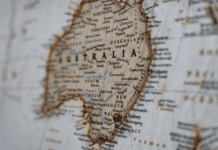
International travel restrictions are on their way out. The Biden administration’s Sept. 20 announcement that citizens of many countries who had been barred from entry will be allowed to enter the U.S. as of November was music to the ears of meeting and event planners with large international constituencies.
Meetings and events with large international attendee bases had to cancel, postpone, or take their events virtual as the U.S. borders slammed shut to international travelers due to COVID-19 restrictions. But today, that all changes as the Biden administration announced that non-U.S. citizens from Europe, the UK, China, India, Iran, Ireland, Brazil and South Africa as of November no longer will be barred from entering the U.S., though they still will have to be able to provide proof of full vaccination before boarding their flights, as well as proof of a negative COVID-19 test within three days of traveling. Airlines also will have to collect contact information on international travelers for contact-tracing purposes, per the Centers for Disease Control and Prevention (CDC).
In announcing the new policies, White House COVID-19 coordinator Jeff Zients said, “This is based on individuals rather than a country-based approach, so it’s a stronger system.” The easing of restrictions only applies to international air travelers, so current restrictions still apply for those looking to travel to the U.S. by land from Mexico and Canada.
The news was heralded with enthusiasm by many in the professional meetings and business travel industry. One was U.S. Travel Association (USTA) President and CEO Roger Dow, who applauded the news that restrictions on international air travel will be lifted for vaccinated individuals, saying it would help revive the American economy while still protecting public health.
“This is a major turning point in the management of the virus and will accelerate the recovery of the millions of travel-related jobs that have been lost due to international travel restrictions,” he said.
“The U.S. Travel Association expresses its deep appreciation to the President and his advisors — in particular Commerce Secretary Raimondo, who has been a tireless advocate — for working with the industry to develop a plan to restart international travel and safely reconnect America with the world.”
During a press conference last week, Dow said, “Lockdowns and restrictions are no longer keeping us safe, vaccinations are … Ultimately, the business community will drive the return to business travel, and in doing so, will shift the economy back to greater normalcy.” Earlier this summer, Dow outlined some of the economic devastation caused by the international inbound travel bans as more than two dozen trade organizations joined US Travel in appealing to the U.S. government to lift the restrictions.
“For each week that travel restrictions remain in place, the U.S. economy is losing $1.5 billion in spending just from Canada, the European Union and the U.K.—enough money to support 10,000 American jobs,” he said.
The new easing of international travel restrictions appears to have taken at least some of the components of the policy blueprint the group released over the summer to heart, including the appeal to “Replace all other blanket travel restrictions with a framework of entry protocols based on a country-by-country and individual traveler risk assessment.”
Cruise Lines International Association (CLIA) also was enthusiastic about the news, saying, “Cruise Lines International Association joins our peers across the travel and tourism sector to express our appreciation to the Biden Administration for recognizing the importance of international travel to the U.S. economy and for establishing a path for international visitors to travel to the United States responsibly.”
On the travel side, the American Society of Travel Advisors (ASTA), welcomed the announcement, call the changes in inbound travel restrictions “overdue.” Zane Kerby, ASTA president and CEO, said, “We view this as a key milestone toward restarting the international travel system on which so many of our members depend. Based on news reports, the plan incorporates several of the common-sense measures we called for along with our travel industry colleagues recently, including expeditiously developing clear vaccination and testing standards, loosening entry restrictions for fully vaccinated travelers and aligning standards with the governments of our main outbound markets, including Canada, the EU, and the UK.”
You Might Also Be Interested In
Vaccine Mandates on the Rise for Events, Travel
Don’t Loosen COVID Precautions Yet
How to Develop a COVID-19 Safety Plan










